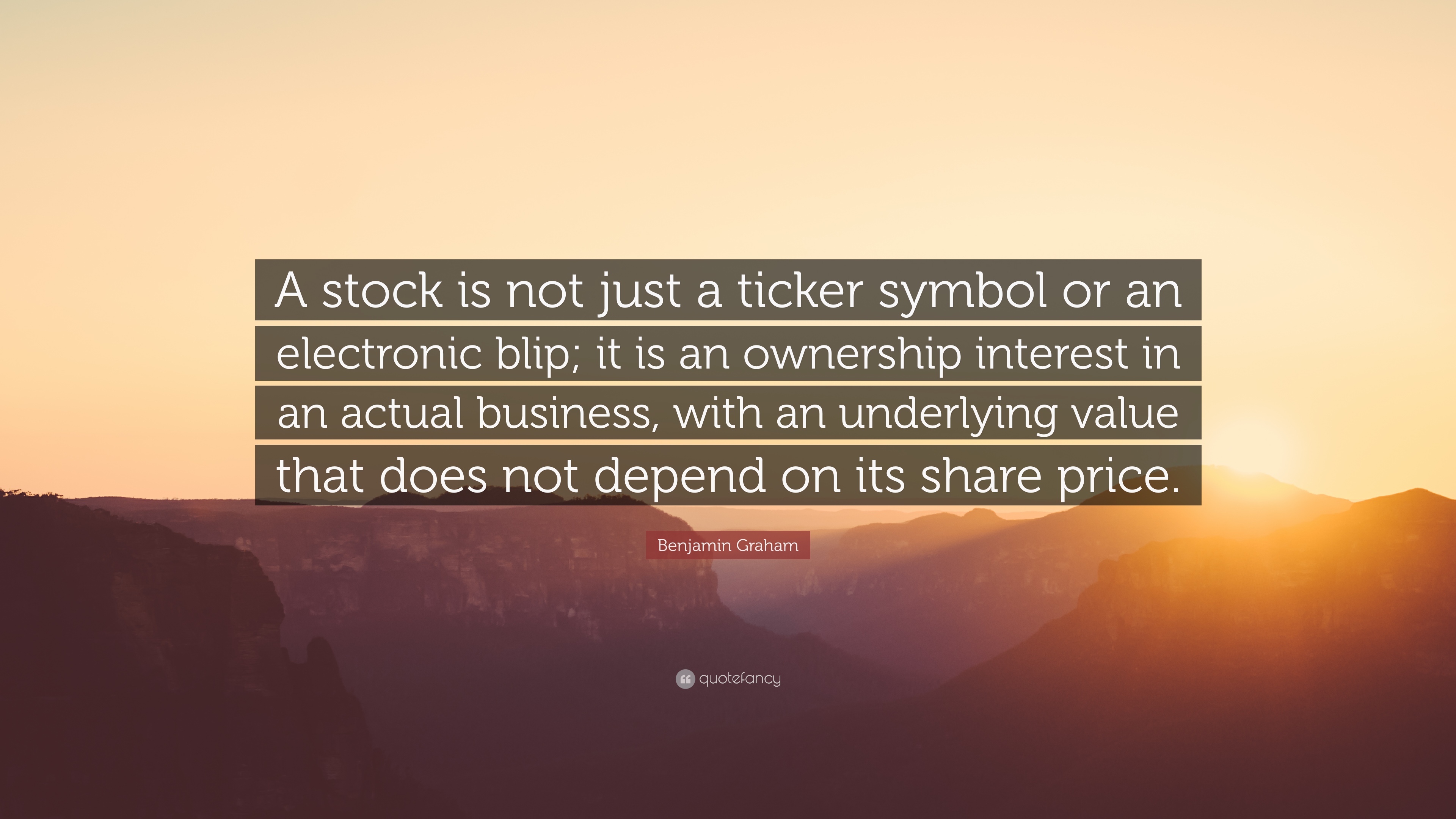
What is the difference between investing in and being in the business of? This seemingly mundane question has profound consequences. Oftentimes investors consider investing as merely buying pieces of paper with the hope of fast and steep price appreciation followed by a quick eventual sale.
Buying a stock in IT company with the hope of realizing short-term price appreciation with little regard to the performance or long-term prospects of the business can hardly qualify as “being in the business o IT”. Such actions are more akin to a merchant buying a food staple merchandise for resale with the hope of capturing margin on the resale and minimizing any inventory obsolesce and spoilage. Such merchant also cannot call himself as being in the business of producing food.
One of Ben Graham’s guiding principles of investing was that investors should treat stocks as fractional ownerships of the underlying businesses.
The contrast between the two schools of thoughts is stark. Investing allows anybody to be in the business of almost anything. A plumber working, saving and investing exclusively in pharma stocks will over time derive a significant portion of his income from pharma. He can justifiably argue that he’s in the pharma business.
Generations of wealthy industrialists made their fortunes in trades as varied as publishing (Graham family), steel (Carnegie), oil (Rockefellers), real estate (Trump), banking (J.P. Morgan) and more recently in technology (Gates, Bezos, Page). These industrials held substantially of their net worth in the business they were in and often founded, they held the stake for long-term, exercised a degree of operational control and influence of operations of the business, and did not sell the business based on market price fluctuations.
What is the difference between McDonald’s franchisee running a McDonald’s restaurant and a long-term investor with an equivalent amount of capital invested in McDonald’s stock. Both derive their income from fast food restaurant business, both focus more on look-through earnings of their respective investments, and both are not particularly bothered by market fluctuations of their respective holdings.
Here’s an idea for consideration. An investor upon identifying a company with attractive long-term prospects available at an attractive price would be well advised to acquire substantial holdings of the said stock, to pay close attention to company’s progress with growing the underlying look-through earnings; count such earnings as part of his annual income; and generally to pay little consideration to vicissitudes in the stock price. Such investor is a true business owner and in the business of…

0 Comments